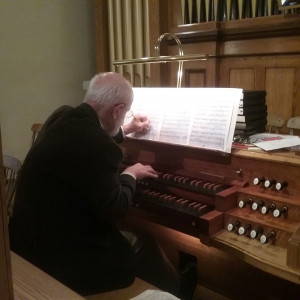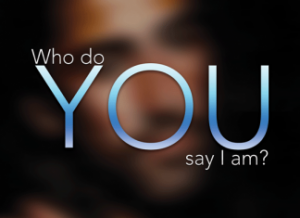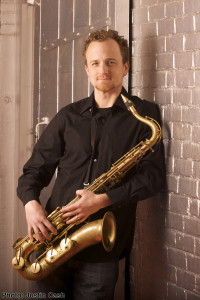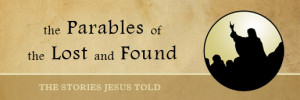“Lost and Found”
Rev. Dr. Michael Caldwell
Bradford Congregational Church
Luke 15: 1-10
August 20, 2017
God has a lost and found. Have you used it?
When I traveled to Germany and Austria in 1973 for Foreign Study, I left my camera on the train in Munich. I was on my way from Berlin to Kitzbuhel in the Austrian Alps – where a weekly ski pass was $25 and the b & b was $1.50 per night. Anyway, knowing the exchange rate was that good, I bought a nice camera in Berlin, so to lose it when I changed trains was a huge loss. I was heartsick.
I filled out a lost and found form at the train station in Kitzbuhel, but never imagined that I’d ever see that camera again, especially since I lost it in Germany and filled out the form in Austria.
Two months after my return to the States, I received a cardboard box in the mail from Munich with the camera inside… and with film I developed pictures from that I still have. The lost and found service of the cooperative German-Austrian train system really worked. Some conscientious person really went out of his way to serve me well.
Couple months ago I went to a contradance in Montpelier. You have to change into soft-soled shoes for dancing. Long story short, I left my good teva sandals there and didn’t realize it until the next day. Fortunately, I knew one of the organizers of that dance and contacted her. She went out of her way to check the lost and found for me and found the sandals and got them back to me.
God has a lost and found that really works – like these two lost and founds. Have you used it?
I can be so hare-brained and forgetful that I’ve lost a lot of stuff over the years. I’ve sometimes tried lost and founds without success. Other times I’ve forgotten to even try…
When we try God’s lost and found – and don’t forget to try it – we may not always be successful right away, but he parables of our Lord here in Luke 15 indicate that God’s impulse is to find us when we’re lost, and to look diligently for us until we get found.
The one lost sheep was so important that the shepherd went out of his way to find it. No sheep in that flock of 100 was extraneous. Every one was precious to the shepherd.
The woman who lost the coin knew the value of that coin and swept the whole house until she found it.
There’s more joy in heaven for one sinner who repents than 99 righteous persons.
Another way to say it:
God rejoices more when we turn to God when we’re lost than when we think we’re superior to others around us, or when we just don’t think we need help finding what we’ve lost – because, let’s face it, we’re all very vulnerable to loss –
loss of loved ones who have died
loss of health / loss of hope
loss of perspective / loss of direction
losing our temper / losing our cool
losing a marriage or a close friend… the list goes on.
One of my favorite books about ministry is Kate Braestrup’s Here if You Need Me – Kate’s memoir of her years as chaplain to the Maine Warden Service. If you haven’t read it, I recommend it highly. Great book. One of the things the wardens do, of course, is conduct searches for missing persons. As she says so well, though most searches do not end well, the families of the lost are always so thankful for the expertise and the dogged determination of the wardens and the whole search and rescue community in Maine.
Braestrup would be the first to compare the commitment of the wardens to God’s lost and found – a lost and found that works even when there is grief along the way.
You might say we use God’s Lost and Found every Sunday in worship, every day in moments of prayer and meditation. Your loss of Tom’s ministry is huge after three power-packed years when you accomplished extraordinary change. But when you focus with God on what you found together, by Grace, as a more fully inclusive Open and Affirming Church and as a congregation covenanted for direct communication, you find yourself fully found for a promising new future with a settled pastor.
In my work at a restorative justice center in Vermont, I see miracles happen in cases of tremendous loss – like with a woman who lost her sobriety over and over again before she got a full recovery when she stood to lose even the custody of her children – all this partly because she felt supported by a circle of support and accountability at the restorative center.
If you listen to NPR’s morning edition, you will recall “Story Corps” on Friday mornings. One of the most memorable stories I ever heard was from a woman by the name of Mary Johnson whose son was murdered. For some reason, she wanted to face her son’s killer, went to the prison and got permission to see him, I believe facilitated through her local restorative justice center. Something happened that first meeting – esp the tears and grief of the murderer – that kept Mary coming back to the prison. After many years, the prisoner became like a son to her and was released on probation early because of the bond with Mary that developed, and her testimony about his repentance.
One more story to conclude: my friend John Morris is a retired Episcopal priest who, in retirement, has immersed himself in activism for peace and justice, esp in the face of the growing revenge complex the US has since 9/11. He went to a march against the illegal and immoral practice of torture by the US military after 9/11 and ended up walking with a man who’s wife was killed on one of the planes that terrorists flew into the WTC in NY. He said to John: “it’s important to me in my grief to let go of my rage. If I give into it, it consumes me. My faith calls me to let go of my rage, like Nelson Mandela who said ‘carrying a grudge is like drinking poison and hoping your enemy will die.'”
What about you? Where in your life is loss hitting you hard? Unless we find a way to let go of our losses, grieve our losses, and find a way forward, find hope again, we stay stuck, we stay lost.
God’s lost and found in worship, in church, in conversation with a trusted friend, at an AA meeting, wherever, makes a huge difference.
Don’t forget to check God’s lost and found whenever you need to along the way… Amen.




